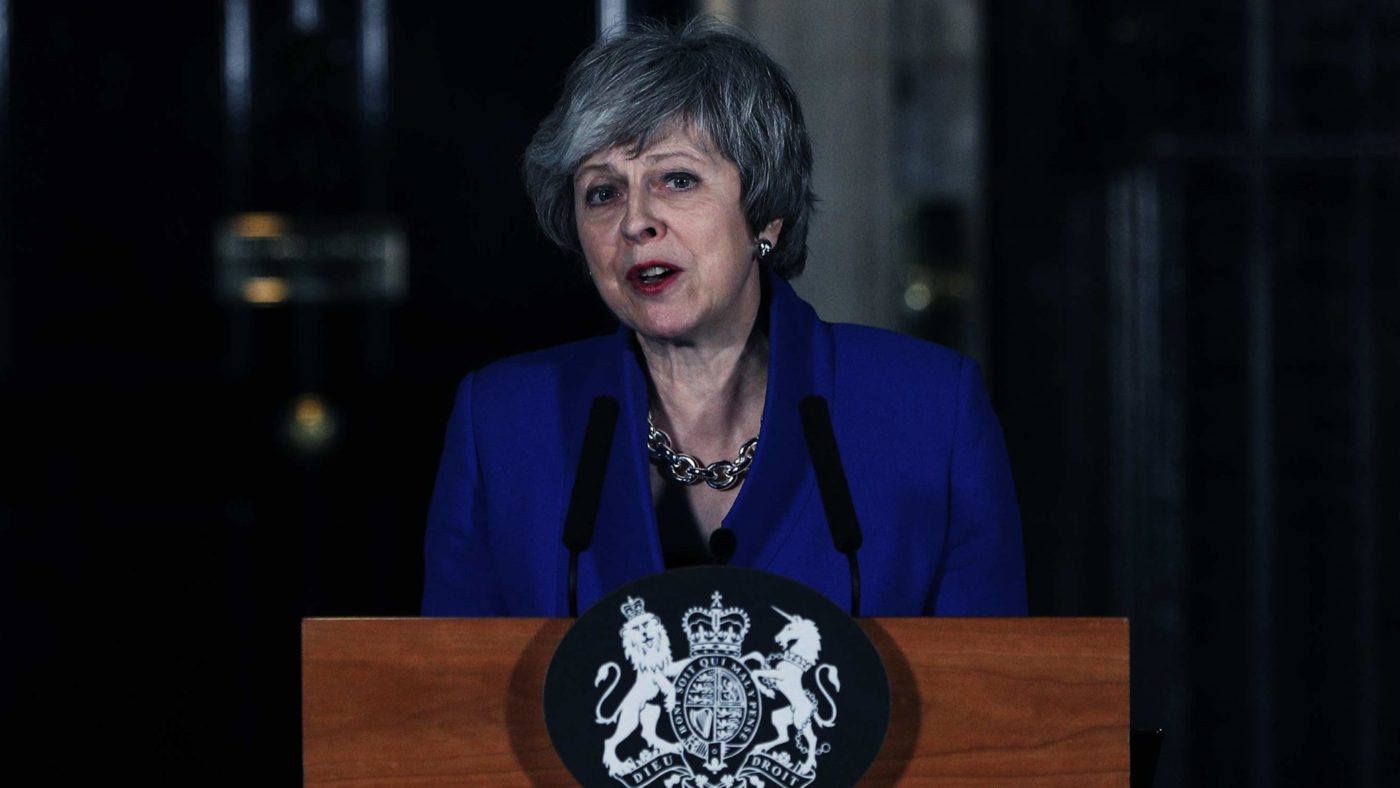For the cross-party talks on Brexit to succeed, the Labour party has to split. And anyone who watched Michael Gove’s brilliant winding-up speech on Wednesday night in the No Confidence debate will have been reminded that Labour is already split. Few Labour MPs believe Jeremy Corbyn is fit to be Prime Minister, and many of them would welcome an issue of principle on which to defy him.
Corbyn has refused to take part in the cross-party talks. In his speech in Hastings on Thursday morning, he reiterated his demand that as a precondition for his participation, Theresa May “take No Deal off the table”. Yet in almost the same breath he appeared to contradict himself by saying that “all options are on the table”. When he asserted that “the prime minister seems unable to grasp what has happened”, one could not help wondering whether (as people often do) he was imputing to her one of his own worst faults.
From Corbyn’s point of view, it may, admittedly, make a kind of sense to avoid revealing what he himself actually thinks about the way forward on Brexit. For whatever he says, he will disappoint some important body of Labour opinion. The elderly Bennites like himself who set up Momentum know that too clear a statement of their Euroscepticism could send the naïve young idealists who flocked to join the movement rushing into the arms of the campaign for a second referendum.
But by keeping silent and refusing to take part, Corbyn also makes himself irrelevant. He remains an outsider, who has never been in government, is frightened of responsibility and at a time of national crisis prefers carping from the sidelines to getting involved in working out a solution. That is not the mentality of Labour MPs such as Hilary Benn and Yvette Cooper. They are former Cabinet ministers, have become used to working with members of other parties in the select committees which they chair, and are taking part in the talks. For them, one feels, it would be a dereliction of duty to stand aside from the process as Corbyn has done.
It may seem odd to have started this piece by pointing to the division between the Labour leader and his backbenchers. For on Tuesday night, no fewer than 118 of May’s backbenchers voted against her deal, as did the 10 DUP MPs. That was a massive defeat, and shows how much ground she needs to make up if she is to get some version of her deal through.
And yet I believe most of those rebels still want to be persuaded her deal has become acceptable. The DUP does not wish to throw away the extraordinarily favourable outcome of the 2017 general election, which left it as the only possible partner for the Conservatives. There is every chance that having extracted some face-saving concessions, it will fall into line.
What of the Conservatives? They benefit from the ancient knowledge, stretching back to the split over the Repeal of the Corn Laws in 1846, that if they pursue their internal quarrel all the way to an open and irrevocable break, they will need a very long time to be forgiven by the voters, if indeed they are ever forgiven at all.
So they too want to hang together, for fear of all hanging separately. The wilderness is not territory into which Jacob Rees-Mogg would regard it as sensible to march. Nor does Boris Johnson want to live out his days there. The same may not be true of every one of their colleagues on that wing of the party. Steve Baker and others may court martyrdom on the altar of parliamentary sovereignty. Among their opponents, Kenneth Clarke, three times rejected because of his Europhile views when he ran for the Tory leadership, is a law unto himself, and Dominic Grieve appears at times to have become terminally exasperated. But Oliver Letwin, who prepared the ground for the deal with the Liberal Democrats in 2010, although he has a genius for getting on with almost anyone, does not wish to do so by splitting the Conservative Party.
Nor do Gove and David Lidington, the skilful negotiators who will be conducting the Tory side of the cross-party talks, wish to end by precipitating a disaster for their own party. The example of 2010 is instructive. It ended up as a disaster for the Lib Dems. Benn, Cooper and the rest are so dutiful, so eager to help the nation in its hour of need, so keen to become once more significant, that they may forget that point. In a coalition, the weaker party almost always comes off worst. Look not just at Nick Clegg, but at Ramsay MacDonald.
Nobody knows how these cross-party talks will turn out. Some will dismiss them as a total waste of time, and will point to the supposedly insuperable obstacles to devising a deal which both the Commons and the EU find acceptable. My own view is not that the cross-party talks will definitely succeed, but that there is a much greater chance of success than is generally realised. The Conservatives are, as it were, doomed to succeed, for the alternative is oblivion.


